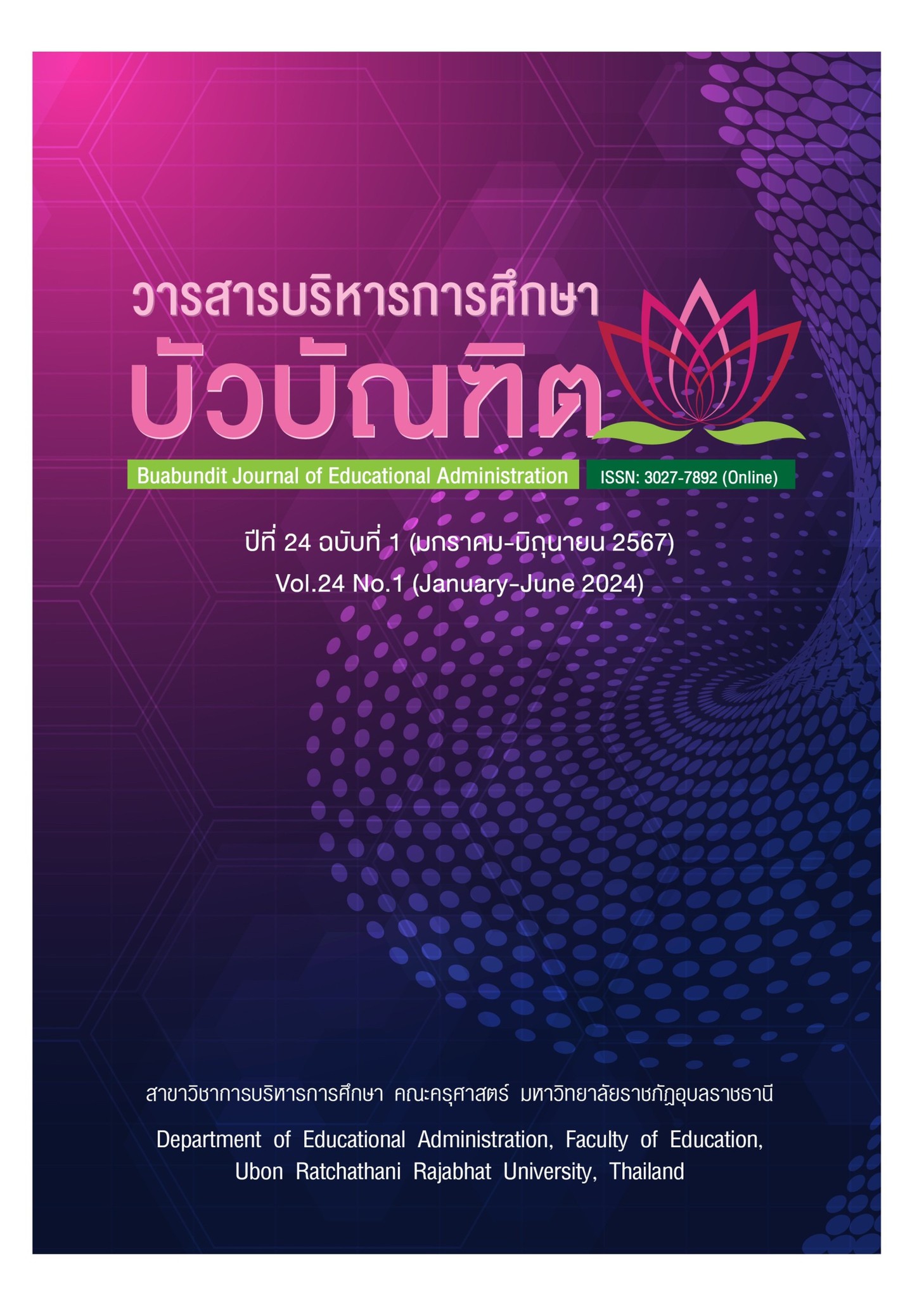แนวทางการสร้างทฤษฎีจากปรากฏการณ์นิยมทางสังคมศาสตร์
Main Article Content
บทคัดย่อ
การเข้าใจปรากฏการณ์วิทยาขึ้นอยู่กับอัตวิสัยของมนุษย์ให้ทำความเข้าใจอย่างลึกซึ้งเกี่ยวกับปรากฏการณ์ทางสังคม ปรากฏการณ์วิทยาเป็นวิธีการวิจัยเชิงคุณภาพที่เน้นการสำรวจประสบการณ์ชีวิตของบุคคลภายในบริบทเฉพาะในขอบเขตของสังคมศาสตร์ วิธีการนี้ช่วยให้นักวิจัยสามารถเจาะลึกความหมายและการตีความเชิงอัตวิสัยอ้างถึงความเป็นจริงทางสังคม ปรากฏการณ์วิทยาช่วยอำนวยความสะดวกในการสร้างทฤษฎีที่รวบรวมแก่นแท้ของประสบการณ์ของมนุษย์โดยมุ่งเน้นไปที่มุมมองของบุคคลที่หนึ่ง ส่งผลให้มีความเข้าใจปรากฏการณ์ทางสังคมที่ครอบคลุมบทความนี้มีวัตถุประสงค์นำเสนอแนวทางการสร้างทฤษฎีจากปรากฏการณ์วิทยาทางสังคมศาสตร์ ซึ่งดำเนินการโดยการศึกษาและวิเคราะห์เอกสารทางวิชาการที่เกี่ยวข้อง ผลการศึกษาพบว่า แนวทางกระบวนการสร้างทฤษฎีจากปรากฏการณ์วิทยา ประกอบด้วย (1) การคัดเลือกปรากฏการณ์ (2) ทบทวนวรรณกรรม (3) ทางเลือกของแนวทางปรากฏการณ์วิทยา (4) การสรรหาบุคลากรและการสุ่มตัวอย่าง (5) การเก็บรวบรวมข้อมูล (6) การถอดความและการวิเคราะห์ข้อมูล (7) การเข้ารหัสและการจัดหมวดหมู่ (8) การระบุความคล้ายคลึงและความแตกต่าง (9) การสะท้อนเชิงทฤษฎีและนามธรรม (10) การสร้างทฤษฎีเบื้องต้น (11) การตรวจสอบสมาชิก (12) การปรับแต่งและการทบทวนซ้ำ (13) บริบทและลักษณะทั่วไป และ (14) การจัดทำเอกสารประกอบและการรายงาน
Downloads
Article Details
เอกสารอ้างอิง
Blau, P.M. (1964). Exchange and Power in Social Life. New York: Wiley.
Creswell, J. W. (2013). Qualitative inquiry and research design: Choosing among five approaches. Los Angeles: Sage Publications.
Creswell, J.W., & Creswell, J.D. (2017). Research Design: Qualitative, Quantitative, and Mixed Methods Approaches. Sage Publications.
Finlay, L. (2009). Debating phenomenological research methods. Phenomenology & Practice, 3(1), 6-25.
Finlay, L. (2009). Phenomenology for therapists: Researching the lived world. John Wiley & Sons.
Giorgi, A. (2009). The descriptive phenomenological method in psychology: A modified Husserlian approach. Pittsburgh, PA: Duquesne University Press.
Giorgi, A. (2012). The descriptive phenomenological method in psychology: A modified Husserlian approach. Pittsburgh, PA: Duquesne University Press.
Hegel, G.W.F. (1801). Science of Logic (W. H. Johnston & L. G. Struthers, Trans.). George Allen & Unwin Ltd.
Homans, G. C. (1958). Social Behavior as Exchange. American Journal of Sociology, 63(6), 597-606.
Moustakas, C. (1994). Phenomenological research methods. Sage Publications.
Moustakas, C. (1994). Phenomenological research methods. Los Angeles: Sage Publications.
Smith, J. A., Flowers, P., & Larkin, M. (2009). Interpretative phenomenological analysis: Theory, method, and research. Los Angeles: Sage Publications.
Smith, J.A., Flowers, P., & Larkin, M. (2009). Interpretative phenomenological analysis: Theory, method, and research. Los Angeles: Sage Publications.
Smith, J.A., Flowers, P., & Larkin, M. (2009). Interpretative phenomenological analysis: Theory, method, and research. Los Angeles: Sage Publications.
Spinelli, E. (2015). Practicing existential therapy: The relational world. Los Angeles: Sage Publications.
Trochim, W.M., & Donnelly, J.P. (2008). The Research Methods Knowledge Base (3rd ed.). Atomic Dog.
Van Manen, M. (2014). Phenomenology of practice: Meaning-giving methods in phenomenological research and writing. Routledge.
van Manen, M. (2014). Phenomenology of practice: Meaning-giving methods in phenomenological research and writing. Oakland, CA: Left Coast Press.


